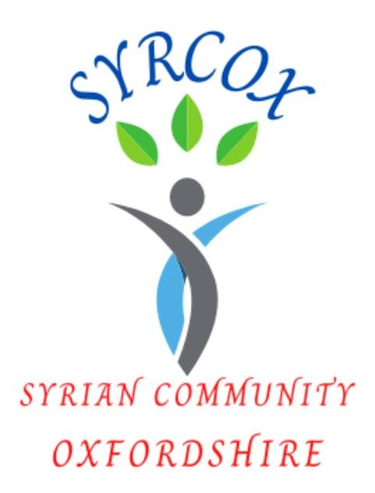Organistaion Policies
Equality and diversity Aims:
The Syrian Community recognises that in our society power is not held equally and that groups and
individuals have been and continue to be discriminated against on many grounds including, for
example, race, sex, age, disability, sexual orientation, class, religion, marital status and where they
The Syrian Community also recognises that where direct or indirect discrimination occurs within the
Syrian Community, it is both morally and legally unacceptable
The purpose of the Equality and Diversity Policy is to set out clearly and fully the positive action the
Syrian Community intends to take to combat direct and indirect discrimination in the organisation, in
the services it provides and in its relationships with other bodies.
In adopting this Equality and Diversity Policy, tie Syrian Community is also making an unequivocal
commitment to implementing it, so as to ensure that equal opportunity becomes a reality.
Code of Practice
The Syrian Community provides activities, guidance and assistance for Syrian men and women and
from other communities. The group will take action to ensure that group activities and events are open
and welcoming to everybody entitled to become a member.
We aim to make our meetings and events accessible to people with disabilities - e.g. provide transport,
meet in accessible premises, provide sign language interpreters when necessary and produce
information in large print.
We aim to use local training Opportunities to help our committee and members better understand how
discrimination occurs and how to prevent it.
We organise regular women only meetings and activities, to support women to play a full and equal
role in the group.
All members of the Syrian Community will have the Equality and Diversity Policy explained to them,
and will undertake to comply with and implement this policy.
Members who have experienced discrimination can make complaints to the
coordinator, who is present at all weekly meetings. If the co-ordinator is unable to resolve the
complaint, it will be referred to the Management Committee.
Code of Conduct
People will be treated with dignity and respect regardless of race, nationality, gender, sexual
orientation, gender reassignment, disability and/or age.
At all times people's feelings will be valued and respected. Language or humour that people find
offensive will not be used, e.g. sexist or racist jokes or terminology which is derogatory to someone
with a disability.
No one will be harassed, abused or intimidated on the ground of his or her race, nationality, gender,
sexual orientation, gender reassignment, disability or age. Incidents of harassment will be taken
seriously.
Dealing with Complaints
The Management Committee will take complaints of discrimination and harassment very seriously
They will investigate them thoroughly, and provide opportunities for the person making the complaint
to speak in a safe environment about their experience
If the complaint is against a particular individual, the committee will hear their point of view.
The Committee will decide the action to take based on the principle of ensuring the continued
inclusion and safety of any member who has experienced discrimination or harassment.
Any decision to terminate someone's membership will be made in line with the rules set out in the
constitution.
Behaviour Policy:
Introduction:
SYRCOX is committed to creating a positive, respectful, and inclusive environment for all members, employees, volunteers, and participants. This policy sets out the standards of behaviour expected to ensure a safe and welcoming space for everyone, in compliance with UK law, including the Equality Act 2010 and Health and Safety at Work Act 1974.
Scope:
This policy applies to all individuals associated with SYRCOX, including staff, volunteers, contractors, and participants in any activities or events conducted by SYRCOX.
Core Principles:
Respect and Dignity: All individuals should be treated with respect, fairness, and dignity. Discrimination, harassment, or bullying on the basis of race, gender, sexual orientation, disability, religion, or any other protected characteristic will not be tolerated. • Inclusivity: SYRCOX values diversity and inclusivity. We are committed to providing equal opportunities and ensuring that everyone feels included and valued. • Professionalism: All members should act professionally and responsibly in their roles, both in-person and online, representing SYRCOX in a positive manner.
Prohibited Behaviours:
The following actions are considered violations of the SYRCOX Behaviour Policy:
•Harassment: Any form of verbal, physical, or online harassment, including unwanted attention, offensive jokes, or inappropriate comments. • Discrimination: Any discriminatory action or comment based on protected characteristics such as race, gender, disability, or religion, in accordance with the Equality Act 2010. • Bullying: Any behavior intended to intimidate, humiliate, or harm another individual. • Violence and Threats: Any act of violence or threatening behavior towards others. • Substance Abuse: The use of illegal substances or being under the influence of drugs or alcohol during SYRCOX activities. • Disrespect of Property: Misuse or damage to SYRCOX property or the property of others.
Health and Safety:
All members of SYRCOX have a duty to follow health and safety guidelines, ensuring their own safety and the safety of others, in line with the Health and Safety at Work Act 1974.
Confidentiality:
Members must respect the confidentiality of SYRCOX’s information and any personal or sensitive data of others, complying with the UK Data Protection Act 2018.
Reporting Violations:
Procedure: Any individual who feels that this policy has been violated can report the issue confidentially to their supervisor, a designated SYRCOX representative, or via the official complaint channels. • Investigation: All reports will be taken seriously and investigated in a fair and timely manner. • Confidentiality: The identity of the complainant will be kept confidential as far as possible, subject to the needs of the investigation.
Consequences of Misconduct:
Depending on the severity of the violation, consequences may include:
Verbal or written warnings
Suspension from activities
Termination of involvement with SYRCOX
Legal action where appropriate
Commitment to Improvement:
SYRCOX is dedicated to the continuous improvement of our working environment and policies. Feedback from all members is encouraged and welcomed.
Review of the Policy:
This policy will be reviewed annually to ensure compliance with UK law and the evolving needs of SYRCOX.
Environmental Policy:
Syrian Community Oxfordshire ( SYRCOX) recognises that it has a responsibility to the environment beyond legal and regulatory requirements. We are committed to reducing our environmental impacts and continually improving our environmental performance as an integral part of our charity strategy and operating methods.
SYRCOX acknowledges the connection between the climate and other environmental crises and the threat of current and future homelessness, disease, food and water shortages and poverty for millions of people around the world, as well as the major damage being caused to our natural eco-systems.
It, therefore, recognises its responsibility to reduce its carbon and environmental footprints and formally commits itself to be an environmentally responsible charity.
To take this forward, it commits to the following actions:
Management
SYRCOX mandates its directors to take executive responsibility for taking forward and implementing this commitment.
We aim to make progress and endeavour to:
● Comply with all relevant regulatory requirements. ● Continually improve and monitor environmental performance. ● Continually improve and reduce environmental impacts. ● Incorporate environmental factors into business decisions. ● Increase employee awareness and training.
Progress on the improvement of SYRCOX’s environmental performance will be a standard item at senior management meetings. All staff contracts will include a clause stating that staff will be expected to help SYRCOX in carrying out its aim of being an environmentally responsible organisation, in how they carry out their day-to-day duties. Induction procedures for new staff will include information on the charity’s environmental practices. SYRCOX will ask all our current and future suppliers for their environmental policies and for evidence of implementation of such policies, and indicate that such performance will be used as a criterion for supplier selection. SYRCOX will seek to have relevant environmental clauses included in any future contracts agreed with outside bodies. SYRCOX will include environmental responsibility training in any future staff training programmes, especially for those involved in providing advice to vulnerable clients. SYRCOX will observe existing environmental legislation as a minimum standard and seek to outperform current legislative requirements where practical. SYRCOX will develop and maintain a sustainable transport policy for their staff, seeking to reduce unnecessary travel and making the transport that is necessary as sustainable as possible and will monitor progress annually.
Review – This environmental policy shall be reviewed annually upon its adoption.
Policy on confidentiality:
SYRCOX keeps information on its members in its membership records and in records of organisation Committee meetings. This will include information such as address and contact details but may also include more personal information. This information is held on trust and the organisation will only use it in certain ways.
All information on members is kept by the organisation Secretary. It can be accessed by other members of the organisation Committee where necessary.
Except in very specific circumstances (see Points 5 and 6, below), when the organisation wishes to share information on a member with outside persons or organisations, the organisation will ask for verbal consent from the member beforehand and will not give out information without this approval.
If a member makes a complaint about another organisation member or official or is engaged in a dispute with another organisation member or official, the information the member provides to organisation officials will be treated as confidential. This information will only be shared with other people, including those the complaint or dispute relates to, with the approval of the member making the complaint.
Information on a member will not be shared with media organisations without his or her consent in writing.
Information on a member will only be shared with outside persons or organisations without that member’s consent when it is legally obliged to do so or when sharing that information could protect the member or another person from serious harm. For example, if the organisation is aware that the member is in danger of harm, the organisation may be legally obliged to share information with the Police or Social Services. Information may be shared with the Police when the member is the subject of a criminal investigation or when there is reason to believe the member is or has been engaged in criminal activity.
Where a member has broken organisation rules and been disciplined by the organisation, other organisation members may need to be informed of the action taken by the organisation.
A member may request at any time to see information held on him or her by the organisation in membership records or other organisation documentation. The organisation will provide this information.
Safeguarding Children Policy
Introduction The Syrian Community in Oxford and Oxfordshire is a not-for-profit organisation run by a group of volunteers committed to supporting and empowering the community. It is managed by a dedicated team, one of whom has specific responsibility for safeguarding children.
This team has adopted a safeguarding children policy and expects every adult working or volunteering with the organisation to support and comply with it. This policy applies to all staff, managers, trustees, directors, volunteers, students, or anyone working on behalf of the Syrian Community in Oxford and Oxfordshire.
Purpose of the Policy This policy is designed to protect children and young people who receive services from us, including those whose parents or carers also engage with our services. We believe that no child or young person should experience abuse or harm and are committed to their protection. The policy provides guidance and core principles for volunteers and staff in safeguarding children.
Risks to children can include:
Sexual abuse
Grooming
Physical and emotional abuse and neglect
Domestic violence
Inappropriate supervision
Bullying, cyberbullying, violence, and aggression
Victimisation
Self-harm
Unsafe environments or activities
Criminal exploitation
We recognise that:
The welfare of the child is paramount.
All children have a right to protection regardless of race, gender, belief, disability, age, sexual orientation, or identity.
Some children are more vulnerable due to personal circumstances.
Collaboration with families and agencies is key to safeguarding.
Safeguarding Children at Events and Activities There are three types of events:
Open to all ages
For children accompanied by a parent or guardian
For unaccompanied children
At open events, children under 16 must be accompanied by an adult over 18. Young people aged 16 or 17 may attend alone with written parental consent and a contact number.
At events for accompanied children, the adult must stay with the child throughout. If one adult brings multiple children, they must remain together. Young people aged 16 or 17 may attend unaccompanied with written parental consent.
At events for unaccompanied children, a responsible adult must enrol the child, providing full contact details. Young people aged 16 or 17 may attend with written parental consent.
All events and activities include any occasion where the Syrian Community in Oxford and Oxfordshire provides services.
Disclosure and Barring The organisation offers activities such as Eid celebrations, trips, and camp holidays. Some may require adult participants to undergo DBS or police checks in line with the Safeguarding Vulnerable Groups Act 2006. The need for checks will reflect the frequency and level of unsupervised access to children.
Any allegation of impropriety will be taken seriously. Concerns must be reported to the management team, who will assess the risk and, if necessary, take appropriate action in line with organisational procedures.
Health and Safety Aspects of Safeguarding Before hosting an event for unaccompanied children, a risk assessment will be carried out and risks minimised. Parents and children will be informed of any known risks. All assessments will be recorded.
Sufficient adults must be present to handle emergencies while continuing to supervise other children.
Prevention of Bullying Bullying of children, by adults or other children, will not be tolerated. In cases of peer bullying, children will be separated and parents informed. The team will assess the incident and may impose sanctions, including banning the child from future events. Allegations against adults will follow the procedures outlined above.
Photographing Children Attendees should expect photography at events. We reserve the right to publish suitable photographs, along with the names of participating members.
Managing Behaviour and Discipline
Adults must not use corporal punishment. Minimal physical restraint may be used only to prevent harm or serious damage.
Unacceptable behaviour will be addressed by separating children and contacting parents.
Disciplinary actions, including temporary bans from future events, may be applied. Appeals can be made to the management team, whose decision is final.
Related Policies This safeguarding policy should be read alongside other policies, such as our Health and Safety Policy.
Legal Framework This policy aligns with:
Children Act 1989 & 2004
United Nations Convention on the Rights of the Child (1991)
General Data Protection Regulation (GDPR)
Human Rights Act 1998
Sexual Offences Act 2003
Safeguarding Vulnerable Groups Act 2006
Protection of Freedoms Act 2012
Children and Families Act 2014
SEND Code of Practice (2014)
Information sharing guidance
Working Together to Safeguard Children (2017)
Syrian Community Oxfordshire
Connecting people through events and cultural activities.
Contact
info@syrcox.org
+44 7446 581638
© 2025. All rights reserved.
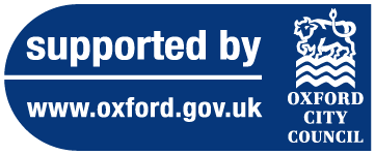
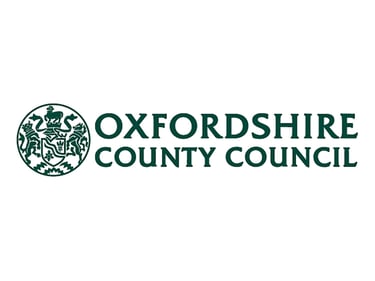


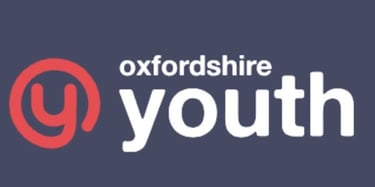

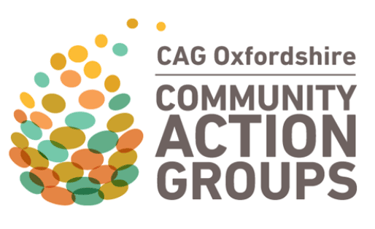











Awards:
Lord Mayor of Oxford Award for Community Service (2024 & 2021)
Lord Mayor of West Oxfordshire Award for Community Service (2022)
Oxfordshire’s Heroes Award by the High Sheriff (2021)
Not For Profit Organisation
